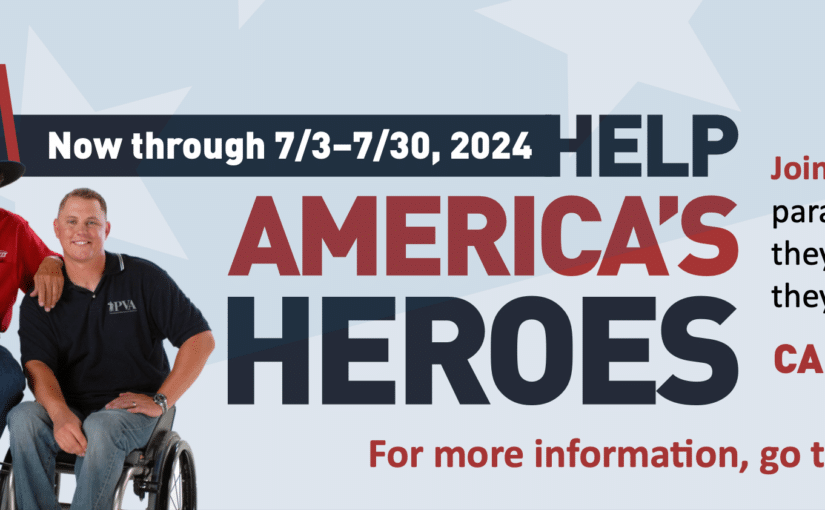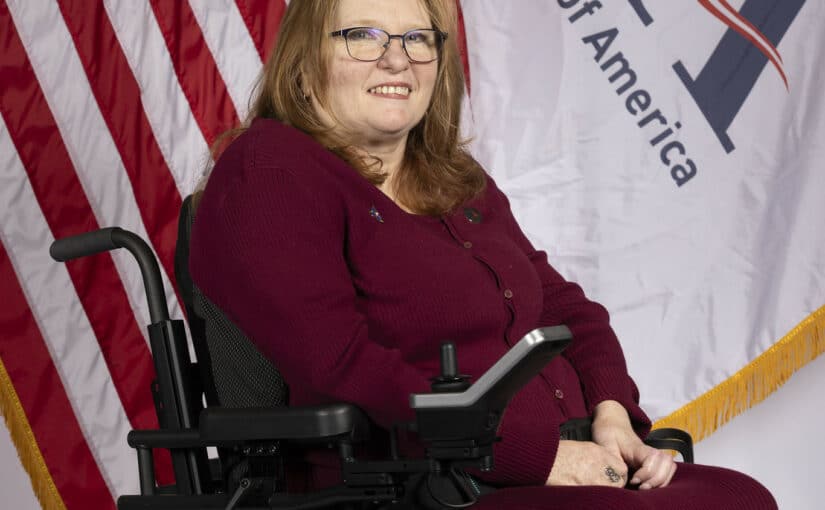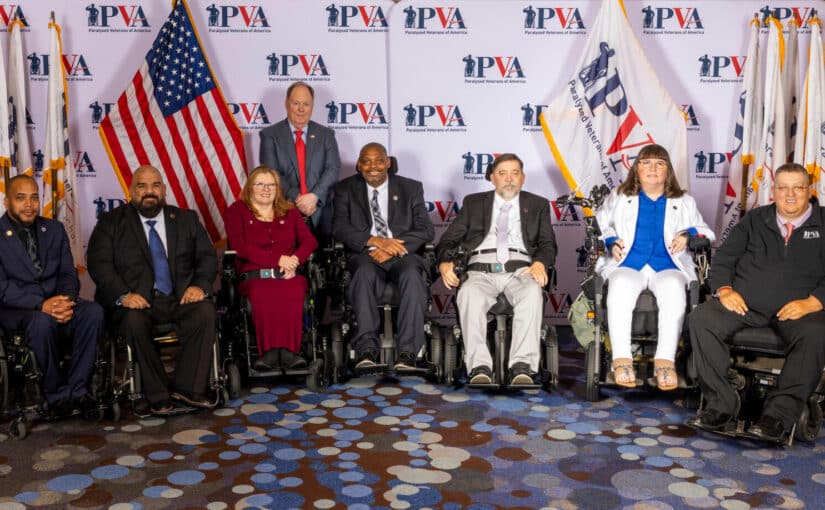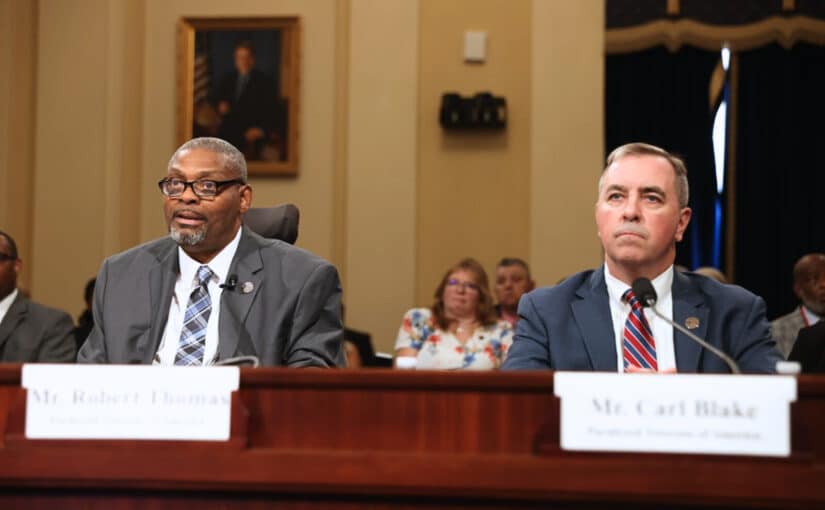Air Carrier Access Act Resources
Post Date: September 24, 2017In 1986, Congress passed the Air Carrier Access Act (ACAA), which guaranteed that people with disabilities would receive consistent and nondiscriminatory treatment when traveling by air. The ACAA states simply:
“No air carrier shall discriminate against any otherwise qualified handicapped individual, by reason of such handicap, in the provision of air transportation.” All domestic carriers and foreign carriers doing business in the United States are covered by the provisions of the ACAA.
In 1990, the Department of Transportation (DOT) issued regulations to enforce the ACAA. These regulations set out certain requirements for the airlines. While some of these regulations require the design of aircraft to be more accessible, most require airlines to modify their practices to ensure that passengers with disabilities do not encounter discrimination.
DOT HOTLINE
The U.S. Department of Transportation (DOT) has established a toll-free hotline to assist travelers with disabilities that operates from 9 AM to 5 PM EST Monday through Friday, except federal holidays.
The hotline will provide general information to consumers about the rights of air travelers with disabilities, respond to requests for printed consumer information, and assist air travelers with time-sensitive disability-related issues that need to be addressed in “real time.” Air travelers who experience disability-related air travel service problems may call the hotline at 1-800-778-4838 (voice) or 1-800-455-9880 (TTY).
SELECT FROM THE LINKS BELOW TO LEARN MORE ABOUT AIR CARRIER ACCESS.
- Air Carrier Access Act regulations
- Air travel service problems
- Air Carrier hotline
- Air Carrier training materials
THE REGULATIONS
Aircraft Accessibility
- All new aircraft and any aircraft that undergoes replacement of cabin interior elements, lavatories, or seats must meet these accessibility requirements:
- Aircraft with 30 or more passenger seats will have movable armrests on at least one half of aisle seats, which will be made available to passengers with mobility impairments.
- Aircraft with 100 or more passenger seats shall have a priority space in the cabin for stowage of at least one folding wheelchair.
- Aircraft with more than one aisle must have at least one accessible lavatory.
- Aircraft with more than 60 passenger seats with an accessible lavatory will have an on-board wheelchair.
Aircraft with more than 60 passenger seats will provide an on-board wheelchair on request for access to an inaccessible lavatory.
AIR CARRIER POLICIES
Refusal of Transportation
Carrier personnel may not refuse transportation to any passenger with a disability except on the basis of safety, nor may they limit the number of passengers with disabilities on a flight. A carrier that denies service shall specify in writing the basis for refusal within 10 days.
Advance Notice
A carrier may require up to 48-hours advance notice and one hour advance check-in for the following reasons:
- Transportation for an electric wheelchair on an aircraft with fewer than 60 seats.
- Provision by the carrier of hazardous materials packaging for a wheelchair battery.
- Special situations such as oxygen, incubator, hook-up for respirator, or accommodation for a passenger who must travel by stretcher.
- Accommodation for 10 or more individuals with disabilities traveling as a group, e.g., a sports team.
- Provision for an on-board wheelchair on an aircraft without an accessible lavatory.
If advance notice is not given, air carriers shall provide the service if they are able to do so with reasonable efforts and without delaying the flight.
Attendants
Carriers may not require a passenger to travel with an attendant except in very limited circumstances (see Sec.382.35). If the airline overrides a passenger’s decision to travel without an attendant, it may designate the attendant but cannot charge for his or her transportation.
Seat Assignments and Accommodations
Carriers may not exclude any qualified individual with a disability from any seat except in order to comply with FAA safety regulations. (The FAA exit row seating rules require that people in these seats meet certain criteria that may deny some people with disabilities seating in exit rows.) If a service animal cannot be accommodated at the passenger’s assigned seat, the carrier shall offer to move the passenger to an alternative seat that can accommodate the animal.
Carriers shall provide upon request seats with movable armrests to passengers who use aisle chairs and cannot transfer over a fixed armrest; seats next to each other for passengers traveling with personal-care attendants, readers, or interpreters; and bulkhead or other appropriate seat for an individual traveling with a service animal or a passenger with a fused or immobilized leg.
Provision of Services and Equipment
Carriers shall provide assistance to passengers with disabilities in enplaning, deplaning, making flight connections, and transporting between gates. Boarding shall be by level entry jet bridge, ramp or mechanical lift on planes with 19 or more seats. Air carrier personnel are not required to hand carry a passenger onto the plane. Carriers shall not leave a passenger unattended in a ground or boarding wheelchair for more than 30 minutes. On aircraft with fewer than 19 seats or planes with less than 30 seats that cannot accommodate lifts or boarding chairs, boarding assistance shall be any means available (with the passenger’s consent) other than hand carrying. Assistance with eating, with medical services, or in the bathroom is not required.
Stowage of Personal Equipment
Passengers using personal ventilators or respirators are permitted to use their own equipment on board the aircraft. Personal oxygen is considered a hazardous material and may not be carried on board. Assistive devices may be stored in overhead compartments and under seats consistent with carry-on baggage rules. If a passenger chooses to pre-board and the on-board stowage area will accommodate a collapsible wheelchair, the passenger’s wheelchair may be stored with priority over other passengers’ and flight attendants’ carry-on baggage.
Wheelchairs and other assistive devices that are checker will be surrendered and returned as close as possible to the door of the aircraft (generally on the jetway) and have priority over other luggage in the baggage compartment. Battery-powered wheelchairs shall be accepted as baggage where compartment size permits. Batteries are not to be separated from wheelchairs unless necessary to meet DOT hazardous materials rules. Carriers will provide battery packaging upon request.
Treatment of Mobility Aids/Assistive Devices
Assistive devices are to be returned to the passenger in the same condition in which they are received. Airlines cannot require an individual to sign a waiver for damage or loss of a wheelchair or assistive device. Carriers must cover the cost of repairing or replacing damaged and lost equipment.
Passenger Information
Carriers shall furnish any general information provided within the terminal (e.g., delay in departure) to passengers with disabilities, including those with vision or hearing impairments. Carriers shall make available on request information about the ACAA regulations and the accessible features or limitations of the aircraft.
Accommodations for People with Hearing Impairments
Carriers shall make available TTY service during the same hours telephone service is available to the general public. Safety briefings shall be accessible to people with hearing impairments by means of captioned or signed video presentation where possible.
Miscellaneous
Carriers shall permit service animals to accompany the passenger on the flight, may require medical certificates only in limited circumstances, and shall not impose charges for providing required facilities, equipment, or services. No passenger shall be required to sit on a blanket or be restricted in movement in terminals.
Training
A critical element of these procedural requirements is training. DOT requires all carriers operating aircraft with 29 or more seats to train “to proficiency” all personnel who deal with the traveling public.
Complaints
Air carriers are required to have Complaint Resolution Officials (CRO) available during all hours of operation to resolve disability related complaints. Anyone who feels they have been the subject of discriminatory actions or treatment by air carriers should initially ask to speak to the CRO on duty.
Passengers may file a complaint online at this link. Complaints can also be sent via e-mail, letter, or complaint form to the Department of Transportation’s Aviation Consumer Protection Division at airconsumer@ost.dot.gov or mailed to this address:
Aviation Consumer Protection Division
Attn: C-75-D
U.S. Department of Transportation
1200 New Jersey Ave, SE
Washington, DC 20590
Security Screening
Security screenings are now regulated by the Transportation Safety Administration of the Department of Homeland Security. Specific information about screening of passengers with disabilities can be found at http://www.tsa.gov/.




